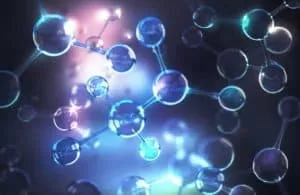Glutathione is a sulfur-containing compound that is an effective natural antioxidant found in the body.
Being a natural detoxifier, it is capable of removing free radicals and reducing oxidative stress in the body.
This process is important for preventing damage to cells and DNA.
Glutathione also plays a central role in the detoxification of drugs, pollutants, and other harmful substances. It helps to bind to toxins and make them more water-soluble, allowing the body to excrete them more easily.
What Decreases Glutathione Levels?
Glutathione is a key factor in age acceleration: as we age, our glutathione levels will naturally reduce.
Lower glutathione can be depleted even further through stress, lack of sleep, and exposure to toxins.
Low levels of glutathione have been associated with various health conditions, including chronic diseases such as cardiovascular disease and neurodegenerative disorders.
On the other hand, infusing patients with the compound has been used in medical settings for various purposes, including the treatment of acetaminophen overdose and certain liver conditions. It is also being investigated for its potential therapeutic effects in conditions such as Parkinson’s disease, HIV/AIDS, and cancer. A recent study also indicated glutathione may be helpful in addressing inflammation associated with COVID-19
Glutathione for Cancer Patients
The toxins of radiation and chemotherapy coupled with stress associated with the disease, lower the level of glutathione in the body.
Infusing cancer patients with doses of glutathione has been shown to enhance immune function and improve the body’s ability to fight cancer as well as protect healthy cells from chemotherapy-induced toxicity.
How Can One Boost Their Glutathione?
Certain sulfur-rich foods can help boost glutathione levels naturally, including cruciferous vegetables like broccoli, Brussels sprouts, cauliflower, kale, watercress, and mustard greens as well as allium vegetables, like garlic, shallots and onions. Milk thistle, flaxseed, seaweed, and whey have also been shown to increase glutathione.
Supplements are another option and include curcumin, selenium vitamin C, and vitamin E.
Glutathione IV
The most effective way to increase one’s glutathione level is through an IV.
When the saline solution that contains the glutathione starts to move through the body, cells are hydrating your cells, which dramatically decreases potential dehydration symptoms.
The body can absorb more than 90% of the glutathione from an IV treatment, a higher level of bioavailability than an oral supplement or diet and exercise.
The optimal schedule for a glutathione IV is 1-3 times per week for about 4 to 9 weeks.
Side Effects of IV Glutathione
There typically aren’t any serious side effects from a dose of glutathione IV.
It is widely known to be safe for adults. The only minor side effects have been cramping, bloating, and lower zinc levels in people who used glutathione over long periods.
















